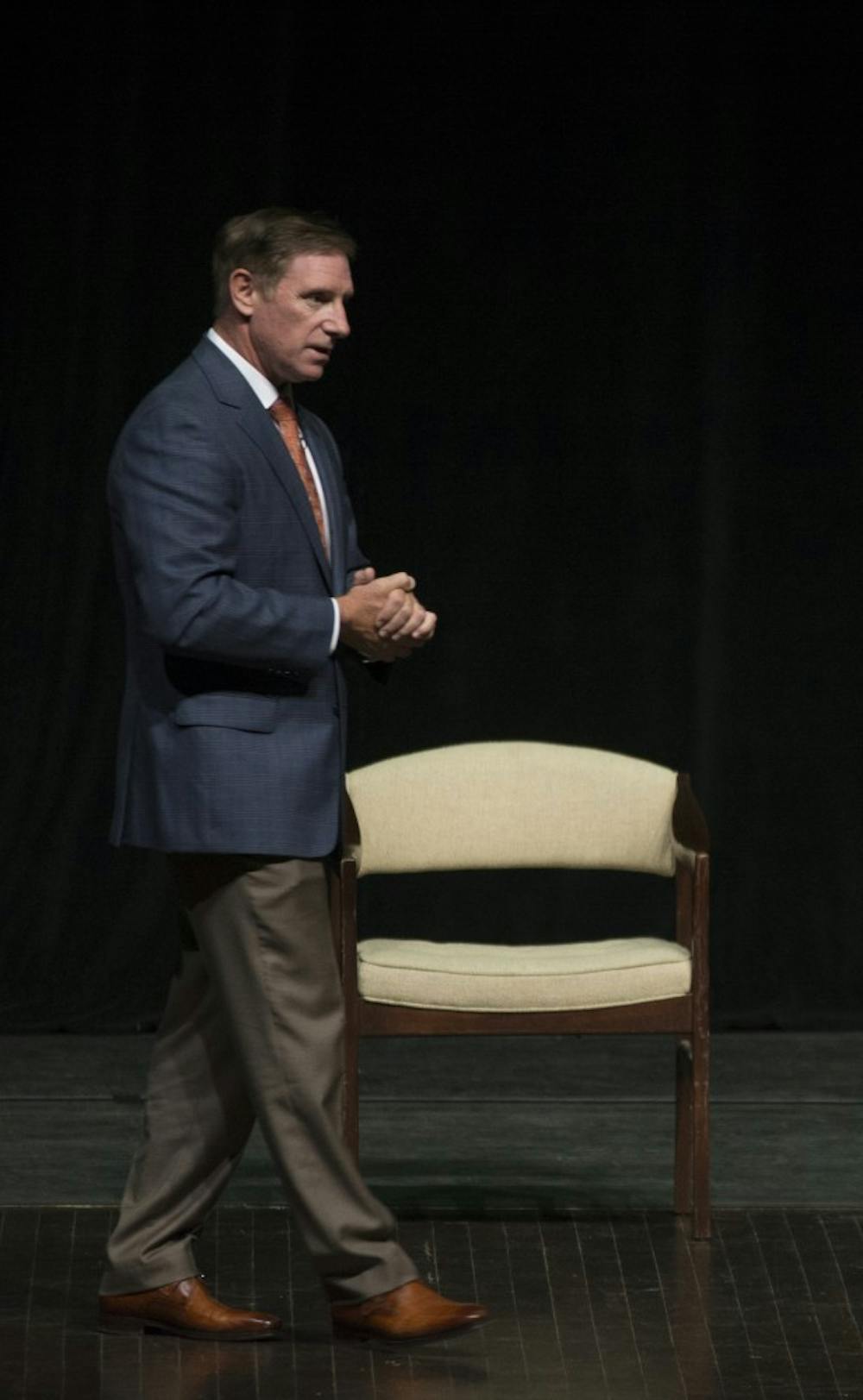Please call the counseling Center at 765-285-1736 if you are suffering from depression.
Additionally you can call the National Suicide Prevention Lifeline at 1-800-273-8255 or text “BRAVE” to 741-741 for help.
When Kevin Briggs, a now-retired highway patroller on the Golden Gate Bridge, ran into someone attempting suicide, it was part of his job to try and stop it from happening.
When approaching someone, he would always turn his radio off to minimize distractions and try to encourage the suicidal individual to step back onto the bridge.
He tried to find that one example that will make someone want to live another day.
Briggs spoke at John R. Emens Auditorium as a part of events put on by the Ball State chapter of Active Minds Sept. 14.
By the time he retired, Briggs witnessed 46 confirmed suicides, but, in reality, the number was closer to 60 because the bodies were not always found. He had no formal training before he started working on the bridge — he just struggled through talking people down.
Suicide is the second leading cause of death among college students, according to Active Minds, a mental health advocacy group. Ball State’s chapter of Active Minds invited Briggs to speak about his personal experience with mental health issues and what he witnessed as a patroller.
Sometimes something as simple as a pet kept someone from jumping to their death, Briggs said.
One time, he found a man who had stepped over the rail due to financial troubles. Briggs started talking to him and found out he had a goldfish. Briggs asked who was going to feed the fish if he died — and that made the man climb back onto the bridge. The goldfish saved his life.
Briggs himself battles depression, and he lost his grandfather to suicide.
“That act, although ending his own pain, robbed me from ever getting to know him,” Briggs said in his TED Talk in May 2014. “This is what suicide does. For most suicidal folks, or those contemplating suicide, they wouldn't think of hurting another person. They just want their own pain to end.”
Being able to hear someone who has had experience with suicide and mental issues resonated with students who have to deal with it themselves.
Freshman Laura Hurst attended the event because she heard a lot of opinions on mental health from people who hadn’t experienced it before. She wanted to see if Briggs had a true understanding of mental illness, and she was glad to hear he did.
“A majority of my friends have suffered from depression and anxiety,” Hurst said. “I have also suffered a lot and have had suicidal thoughts in the past.”
Hurst was 10 years old when she first experienced depression, and she had a difficult time with it.
“I was awkward and in a lot of pain. I didn’t have a lot of friends,” she said. “I would sleep a lot; if I wasn’t sleeping, I was crying.”
Kitty Taylor, a sophomore, had her student teacher in high school commit suicide. She didn’t know him that well, but it hit her hard knowing the man was no older than she is now when he killed himself.
“A lot of people tell me that people are very selfish when they kill themselves, or people will say really nasty things about these individuals when, in reality, they don’t understand the situations or the fact that depression and anxiety can, in fact, be a terminal illness,” Taylor said.
The American Foundation for Suicide Prevention estimates 1,100 students die by suicide each year at college, and 67 percent of college students tell a friend they are feeling suicidal before telling anyone else, according to Active Minds.
Brittany Mayfield, a freshman, said she helped a friend with depression in the past and can still see the lasting effect on him.
“I’m one of the people that activates conversation even if the other person doesn’t want me there,” Mayfield said. “Kind of like how people wanted to jump off the bridge. Those people didn’t necessarily want [Briggs] there.”
|
Please call the counseling Center at 765-285-1736 if you are suffering from depression. Additionally you can call the National Suicide Prevention Lifeline at 1-800-273-8255 or text “BRAVE” to 741-741 for help. |





